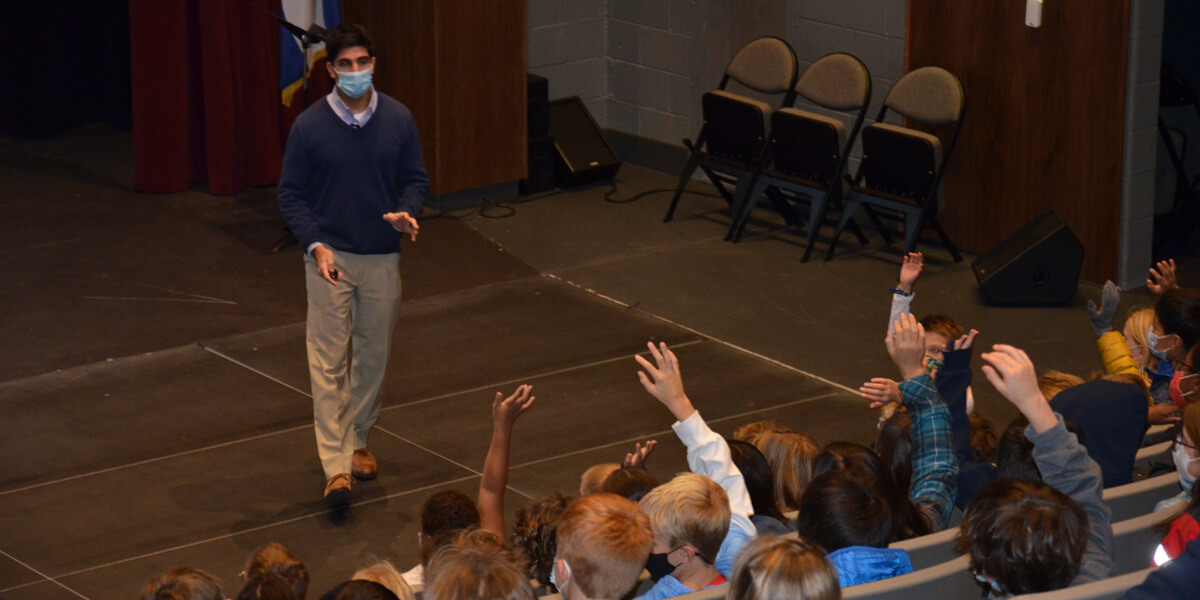A fun approach with live polling during a cyberbullying presentation gave Colorado Academy Middle and Upper School students the chance to privately—and honestly—share their use and engagement with technology.
Dr. Sameer Hinduja, Co-Director of the Cyberbullying Research Center at Florida Atlantic University, spent an entire morning at CA just before Thanksgiving Break talking with students about safe social media use, while addressing rising concerns about online communication by young people.
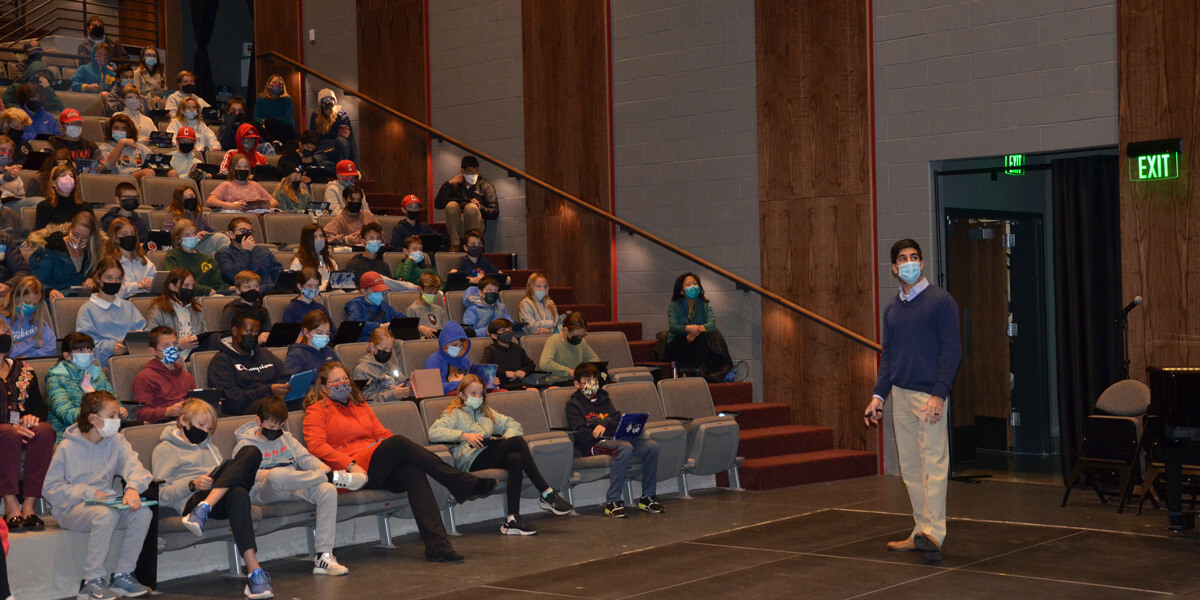
Answers = Reality
Middle School students were highly engaged, answering “yes” and “no,” as he polled them on their social media accounts and the types of sites they visit. Hinduja encouraged students to give honest answers, saying the answers were “just reality.” What was gleaned from the responses is that the vast majority of kids are doing the right thing.
For example, one question asked how many had experienced online hassles. Thirty-four percent of Sixth through Eighth Graders said “yes” and 66 percent said “no”; but for that one third, the hassle was pretty serious. He encouraged kids to speak up and reach out if they are ever bullied—in person or online.
One important tip he shared was for students to make sure they know how to take a screenshot and—especially important—how to take a “screen recording,” since so much cyberbullying is now via video.
“Create the digital evidence, so the school can get involved and so that authorities can investigate,” Hinduja said. Acknowledging those who may worry about retribution, he said, “Please be bold, and take it.”
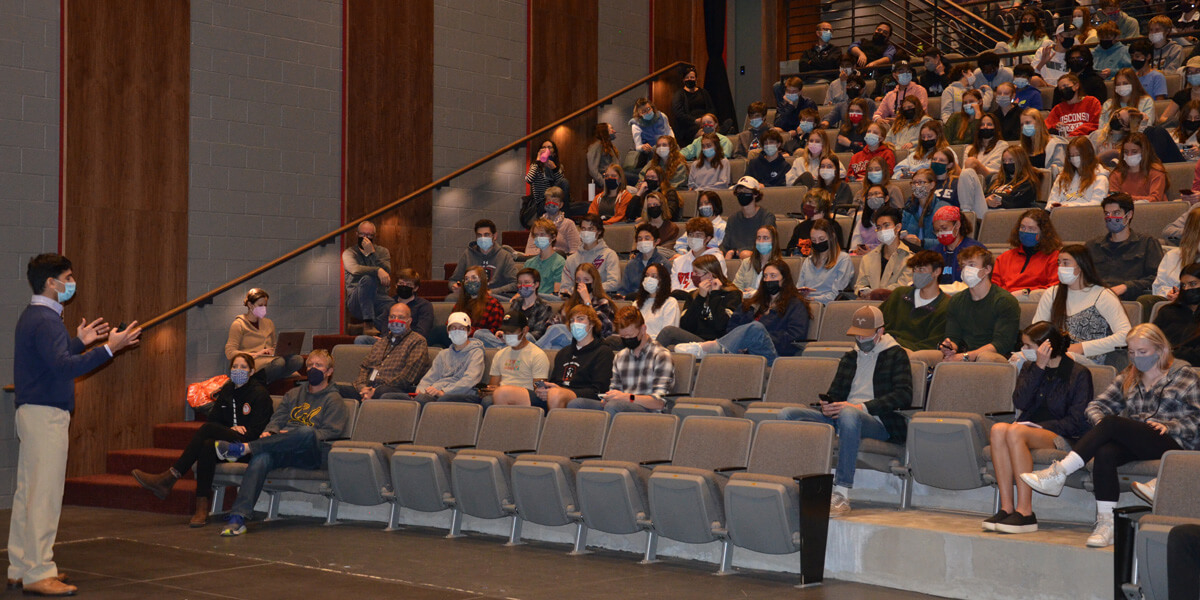
Upper School talk gets real
Hinduja took a more serious approach with Upper School students, stating that the goal of being online and using technology is to avoid moments of regret.
While suggesting ways to get involved when they see cyberbullying, he challenged the upperclassmen to avoid the negative and to identify what they care about and try to make an impact—technology allows you to become known for something bigger than yourself.
He gave this audience some tips on establishing a strong online presence that included:
- Set up Google’s “about me” page. Most searches start on Google, and the site will first search its own product.
- Own the first two pages of Google, with positive messages and images of community service, athletics, etc.; and avoid posting unflattering photos.
- Leverage all of your accounts for the future, for good.
- Put your URLs on your resume.
- Consider getting your own domain.
Hinduja repeated his safety message about collecting digital evidence through screenshots and screen recordings when students do encounter cyberbullying.
He left the high schoolers with this message, “In life you get a ton of chances. The next mistake is sometimes the one mistake that follows you, and you won’t get the chance to be known for who you really are, or what your heart is like; and instead, you could always be known for that one online mistake.”
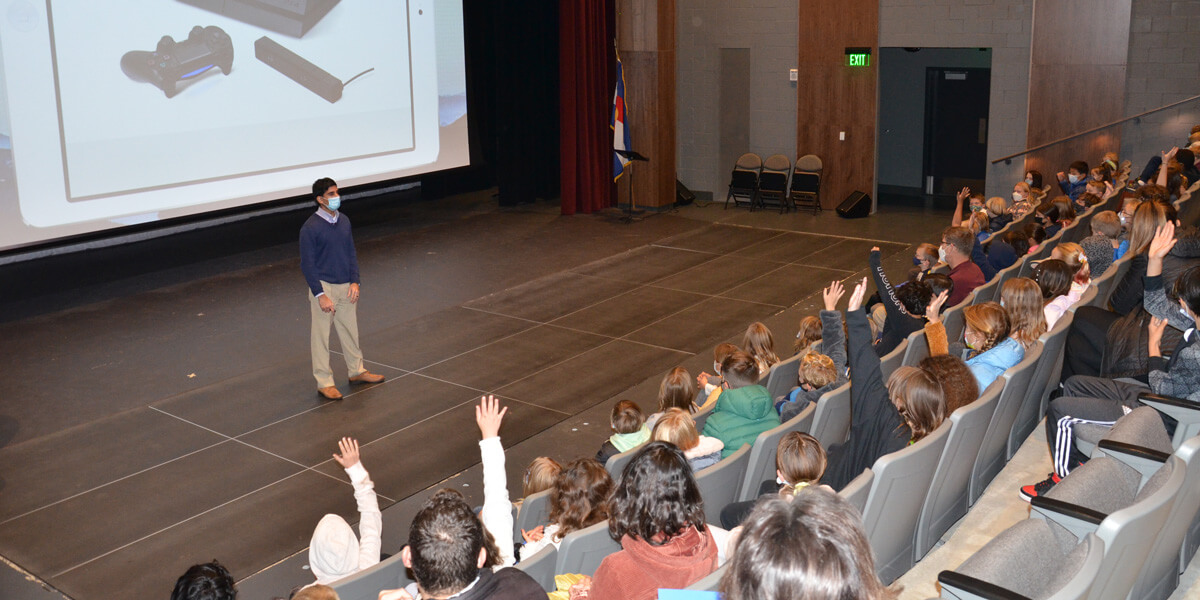
Fourth and Fifth Graders focus on making wise decisions
Less sophisticated, but still animated, polling took place with CA Fourth and Fifth graders. Hands went up and down as Hinduja ran a quick check of the kinds of technology and games that engage these students.
“The goal is just to enjoy technology and make wise decisions,” said Hinduja.
While highlighting what’s cool about technology and that students have the super power to use technology for good, he also talked about some of the negatives, such as cyberbullying.
Students gave honest answers when asked how they feel when they see something mean or cruel online. “It makes me sad and ashamed,” one said. Another added, “scared,” and others said, “It makes me wonder if I did something wrong,” and “It makes me feel not like myself.” One admitted, “It makes me feel like I have to defend myself.”
Hinduja affirmed that these are all legitimate feelings, and he reminded students that they need to be a good friend to those who may be hurting from an incident of cyberbullying.
His takeaway for the younger students was to have an action plan for when they see threats online, or inappropriate images or conversations. This includes: reporting the page by clicking on the three dots, so that the platform can be made safer, blocking the site, and sharing the information with adults, so it can be investigated by the school or police.
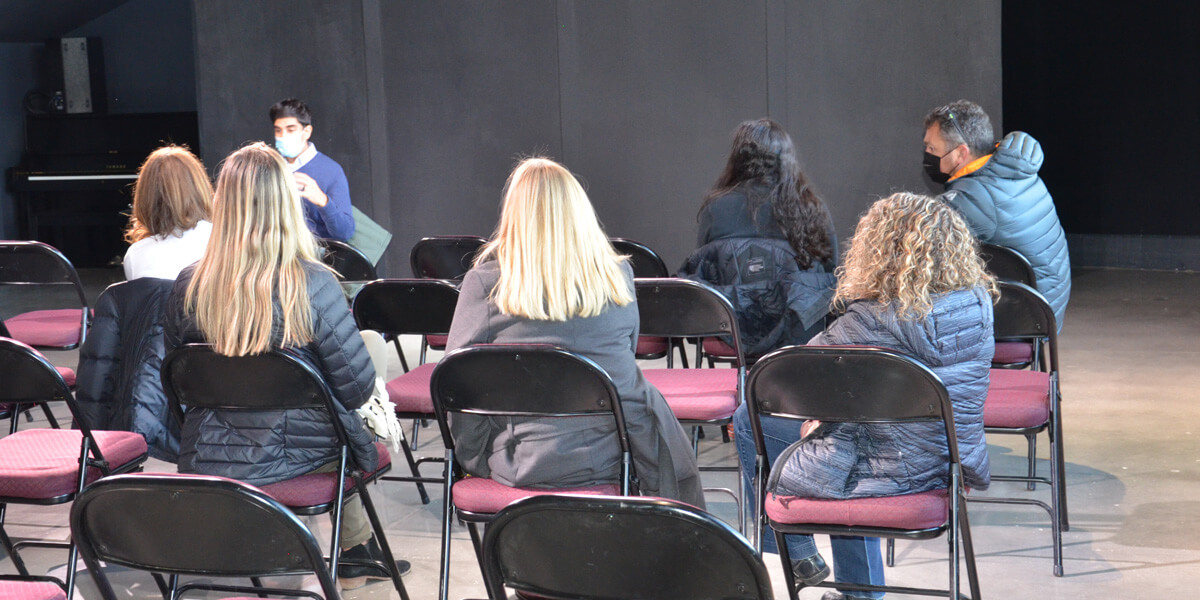
Parent talk
After the student presentations, Hinduja sat down with parents for a quick 45 minutes, talking about what he shared with students and giving parents a chance to ask questions of their own. Each walked away with a personal invitation to email him with any concerns or additional questions. Something he offered to the entire CA community: feel free to contact him at sameer@hinduja.org. CA Parents also can find helpful tips on a variety of cyberbullying topics on the online Parent Resource Board.
